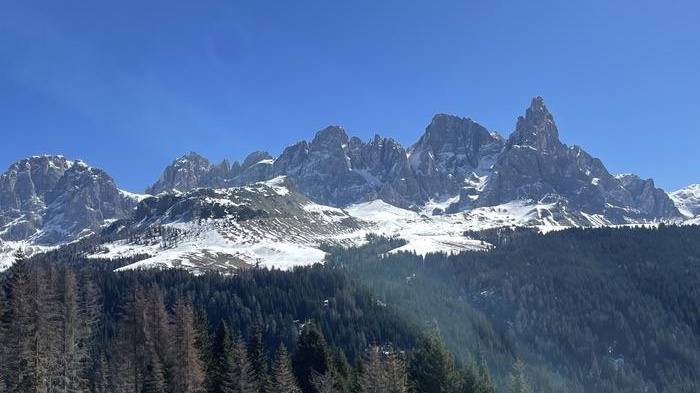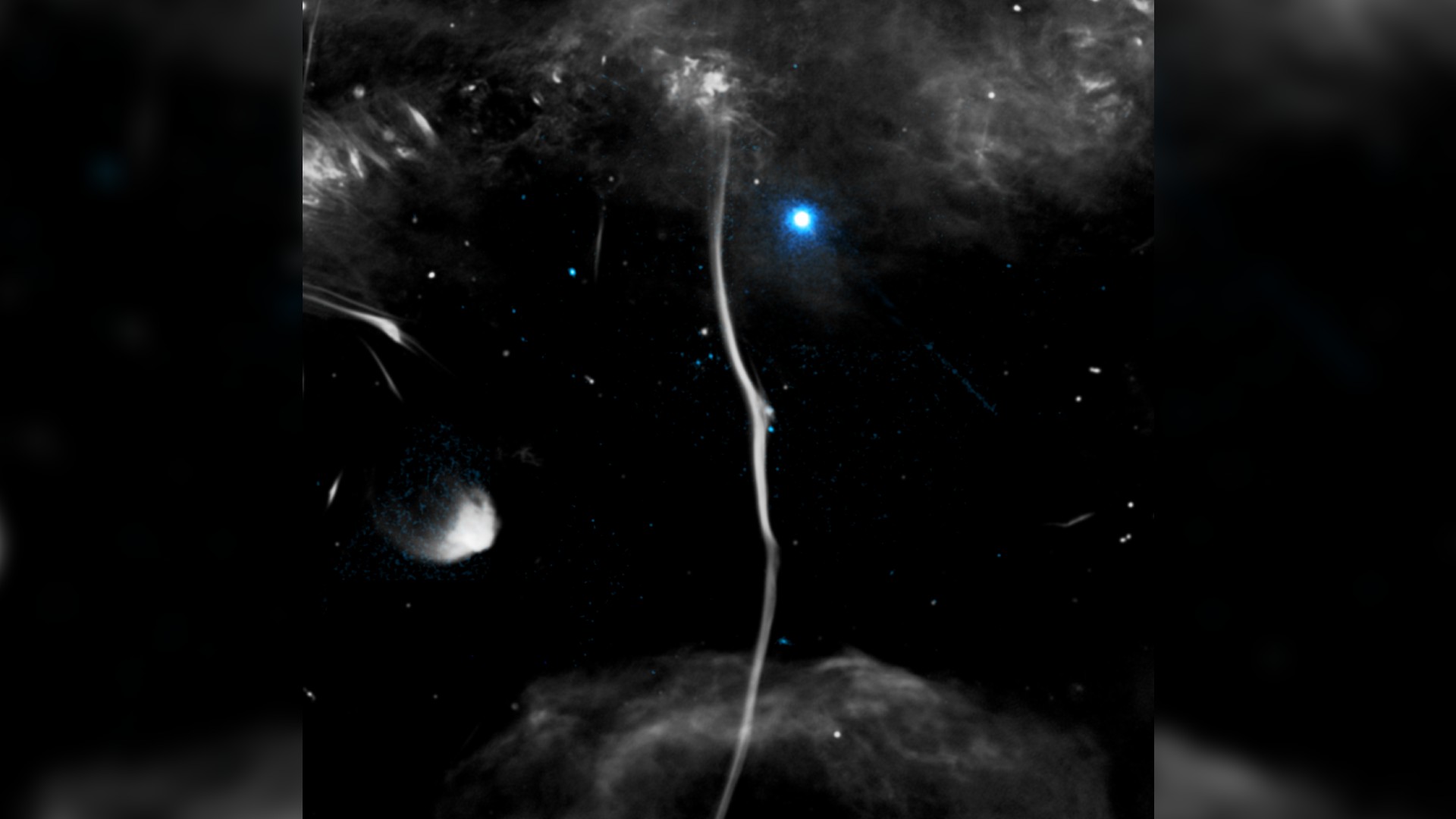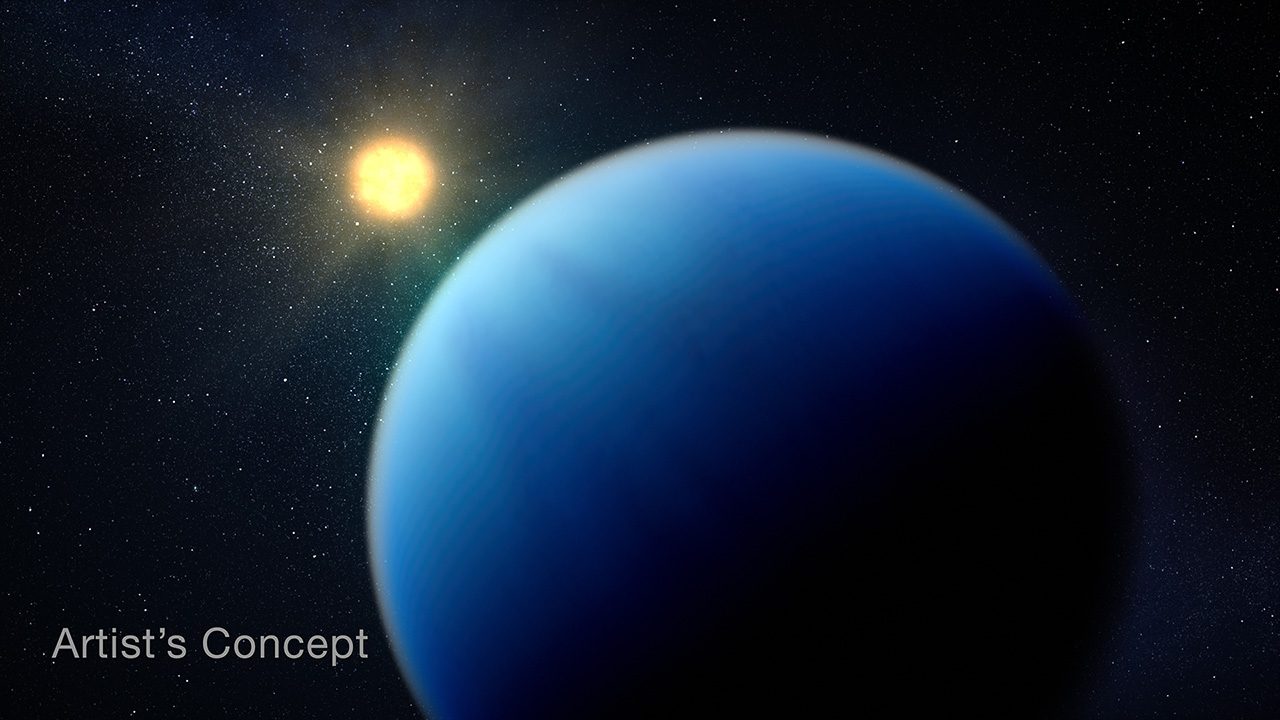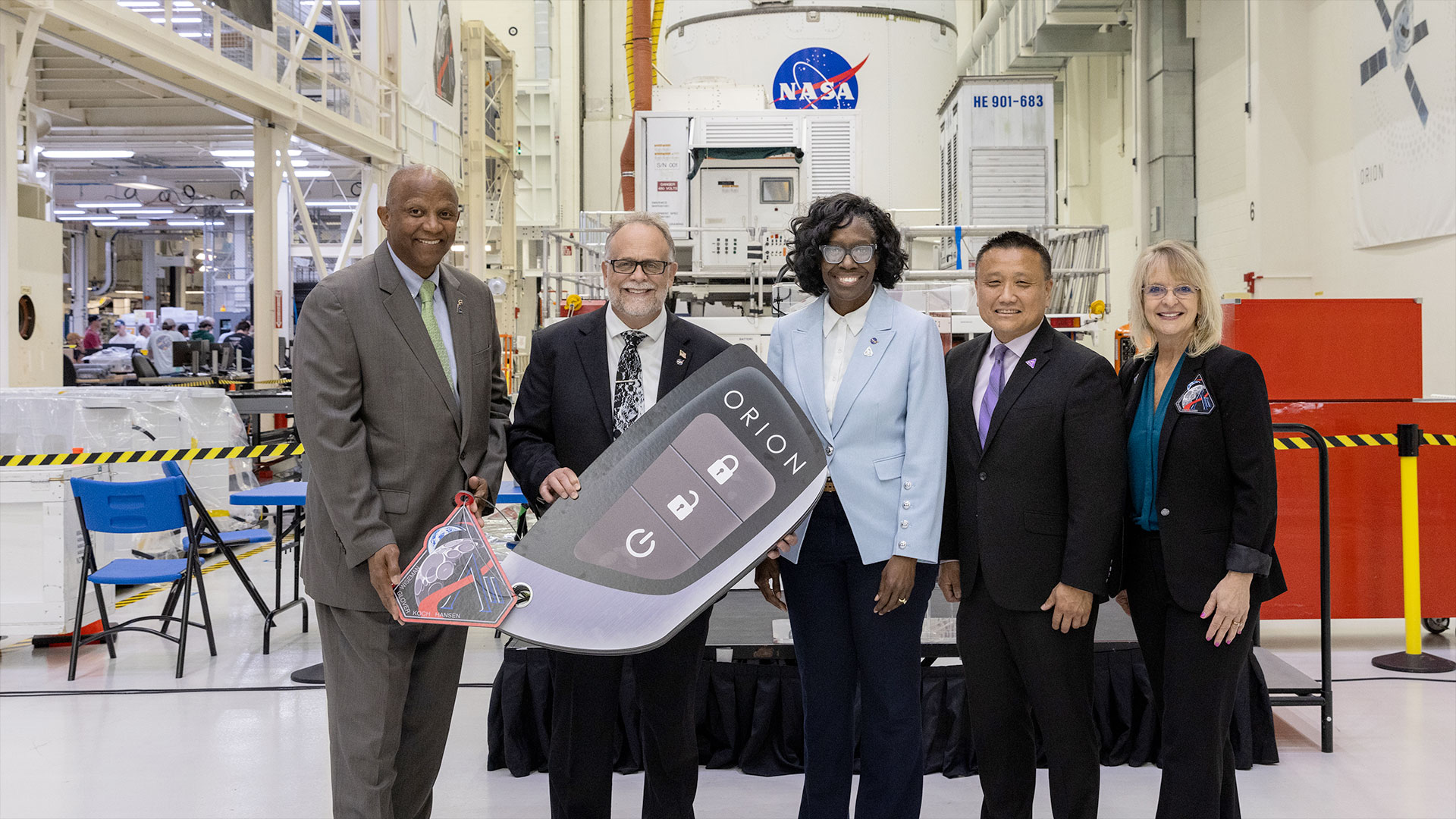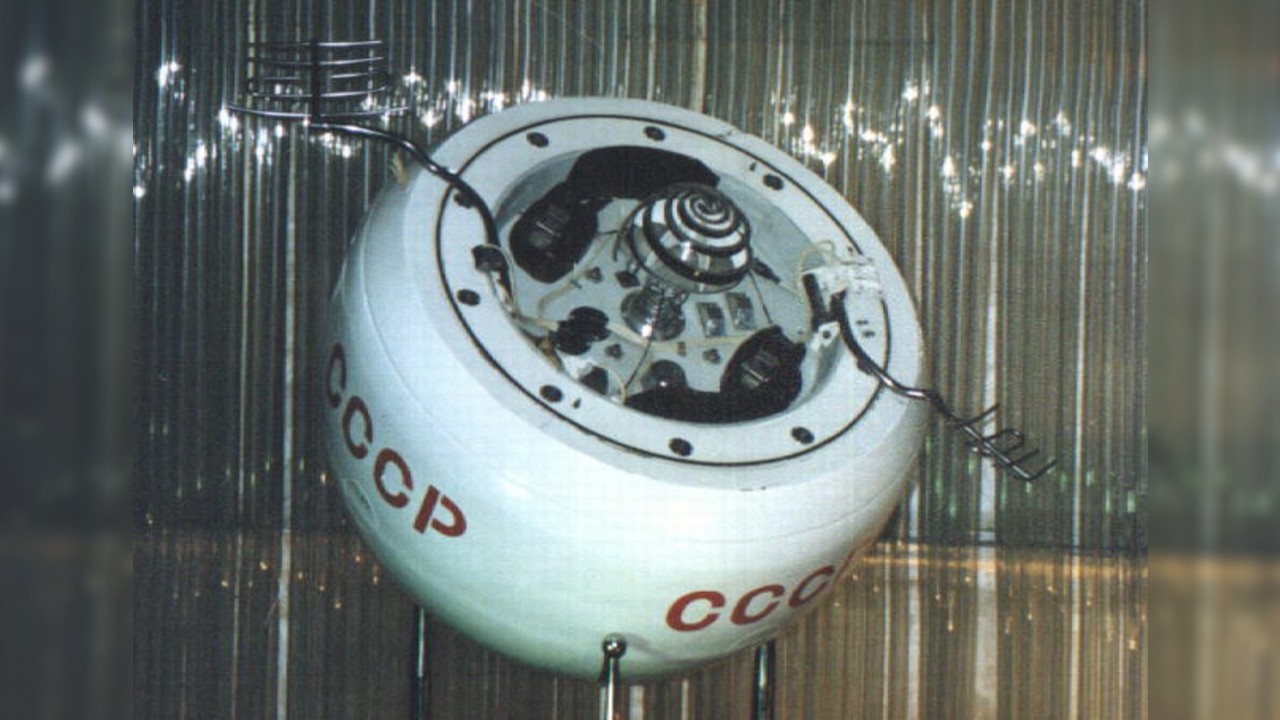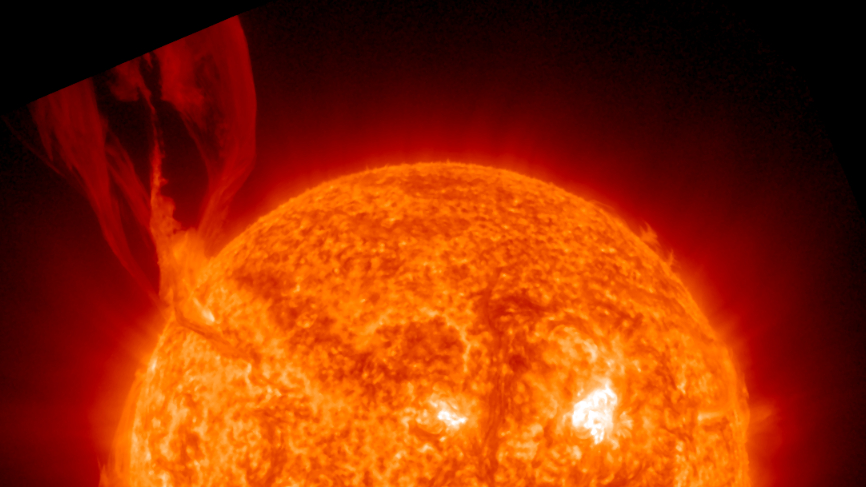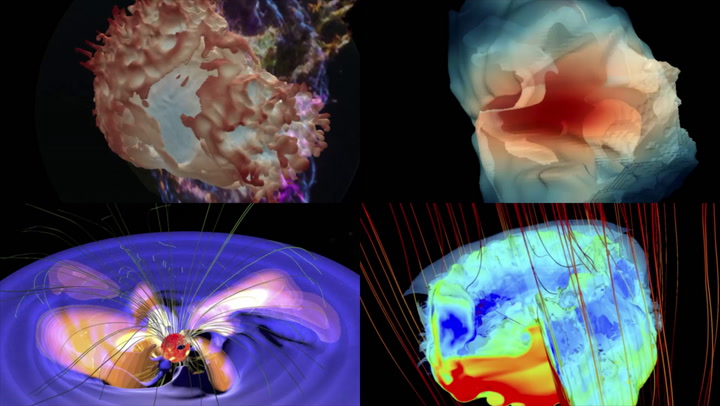Is interstellar Comet Borisov breaking apart as it leaves our solar system?

It's tough being in a new environment, even for comets. According to recent observations, interstellar Comet Borisov may be having outbursts triggered by flying through our solar system and past our sun.
The comet, now dubbed Borisov, first caught skywatchers' attention in late August 2019. Repeated observations of the object traced its trajectory, and astronomers determined that its strange path meant that the comet could only have come from beyond our solar system and was just passing through our neighborhood.
This month, astronomers checking in on the object found that something weird was happening. A team based in Poland reported that twice in March so far, Comet Borisov had brightened up. "This behavior is strongly indicative of an ongoing nucleus fragmentation," they wrote in a note describing the new observations.
Related: Interstellar comet: Here's why it's got scientists so pumped up
Such a phenomenon would be caused by Borisov's approach toward the sun. That's been a possibility that scientists have considered since its close flyby of the sun in December. Like all comets, Borisov is a hunk of icy debris, so passing by the sun causes interactions with that ice.
Borisov was an exciting discovery because — unlike 'Oumuamua, the first interstellar object that scientists spotted — astronomers identified the object with plenty of time, more than a year, to watch and study its journey through our solar system.
It's precisely observations like these new ones that scientists hoped that long period of visibility would permit.
Get the Space.com Newsletter
Breaking space news, the latest updates on rocket launches, skywatching events and more!
- We could chase down interstellar Comet Borisov by 2045
- This comet might be from interstellar space. Here's how we could find out.
- 1st color photo of interstellar comet reveals its fuzzy tail
Email Meghan Bartels at mbartels@space.com or follow her @meghanbartels. Follow us on Twitter @Spacedotcom and on Facebook.
OFFER: Save at least 56% with our latest magazine deal!
All About Space magazine takes you on an awe-inspiring journey through our solar system and beyond, from the amazing technology and spacecraft that enables humanity to venture into orbit, to the complexities of space science.
Join our Space Forums to keep talking space on the latest missions, night sky and more! And if you have a news tip, correction or comment, let us know at: community@space.com.

Meghan is a senior writer at Space.com and has more than five years' experience as a science journalist based in New York City. She joined Space.com in July 2018, with previous writing published in outlets including Newsweek and Audubon. Meghan earned an MA in science journalism from New York University and a BA in classics from Georgetown University, and in her free time she enjoys reading and visiting museums. Follow her on Twitter at @meghanbartels.
-
Torbjorn Larsson ReplyAdmin said:It's tough being in a new environment, even for comets. According to recent observations, interstellar Comet Borisov may be having outbursts triggered by flying past our sun.
Is interstellar Comet Borisov breaking apart as it leaves our solar system? : Read more
More (albeit weak) validation of the interstellar object hypothesis. ""For Solar System comets, it is known that dynamically new comets are 10 times more likely to disintegrate than short-period comets, presumably due to their pristine state and weaker structural strength," wrote researchers led by Quanzhi Ye from the University of Maryland last year."
https://www.sciencealert.com/interstellar-comet-2i-borisov-seems-to-have-come-here-only-to-die ]


